| Tajweed Rules Of The Quran |
| Tajweed Rules of the Quran part 1: This book explains the articulation points of the Arabic letters, the rules of noon saakinah, meem saakinah, and lam saakinah. It explains all of the different lengthenings(mudood) and how voweled/non-voweled letters are formed. The qalqalah mechanism is explained in the last chapter. Terms are introduced in Arabic and then translated into English. Explanantions are done in English but with intergration of the Arabic terms as they are learned. 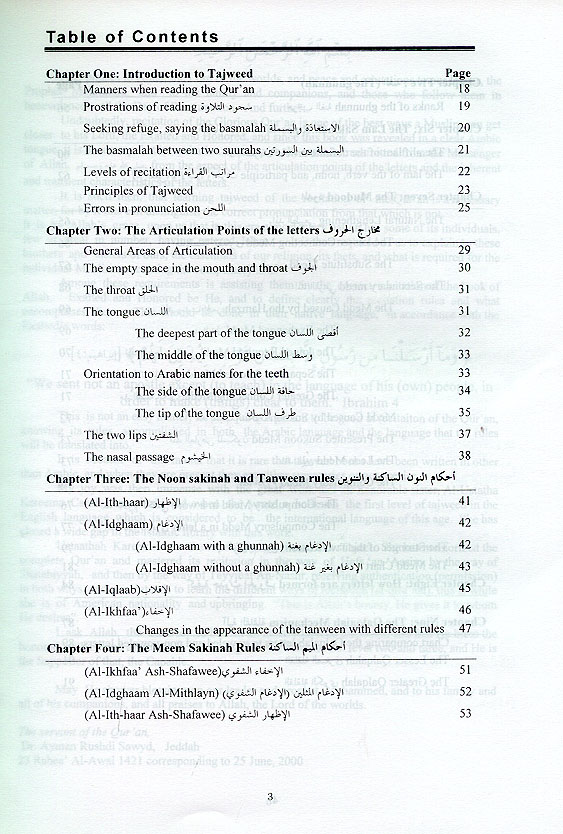 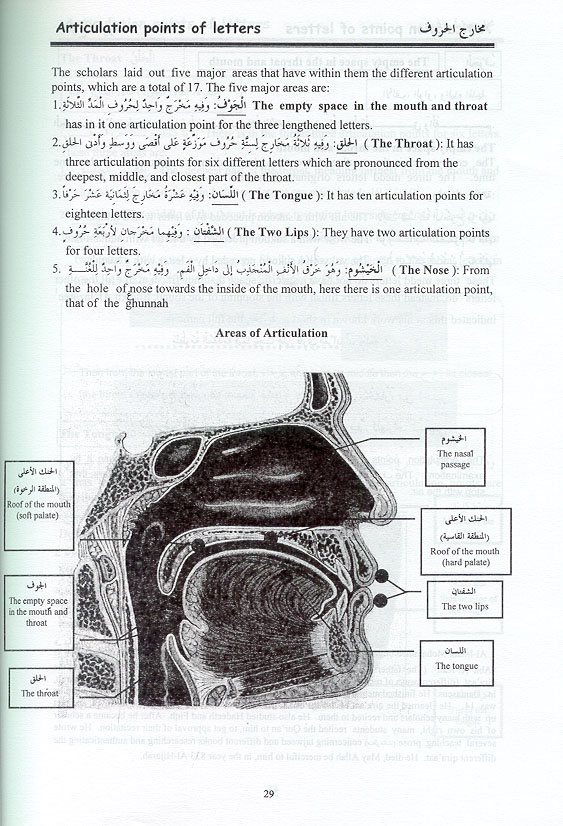 Tajweed Rules of the Quran part 2: By Allah's grace, this is the second part of what shall be, insha' Allah, a three part series on the rules of tajweed of the Qur'an, for the recitation of Hafs from 'Aasim by the way of Ash-Shaatibiyyah. The book is intended to be a guide for non-Arabs with a good grasp in English in studying tajweed. This book explains the concept of the accent (an-nabr) in the recitation of the Glorious Qur'an and the conditions of its use, it also defines and explains the important chapter on the characteristics of the letters, velarization and attenuation (tafkheem and tarqeeq) are covered in this part, as well as the concept of the two alike, the two similar, the two close, and the two far and the rules for idghaam and ith-haar in these different relationships. A brief introductory to grammar terms is made in this book to assist the student in understanding the last chapter, that of the connecting hamzah (hamzah al-wasl). The explanations of the different subjects are in English, and the Arabic terms are translated. This is to assist the student in understanding and encourage them to learn the Arabic definitions and terms. This book should facilitate non-Arabs studying tajweed whether they are in a classroom with explanations taught in Arabic or in English. This book cannot replace the importance of reciting to and being corrected by a trained teacher of tajweed, instead it is a guide and an aid in understanding the concepts of tajweed, the application can only be refined by recitation and correction. 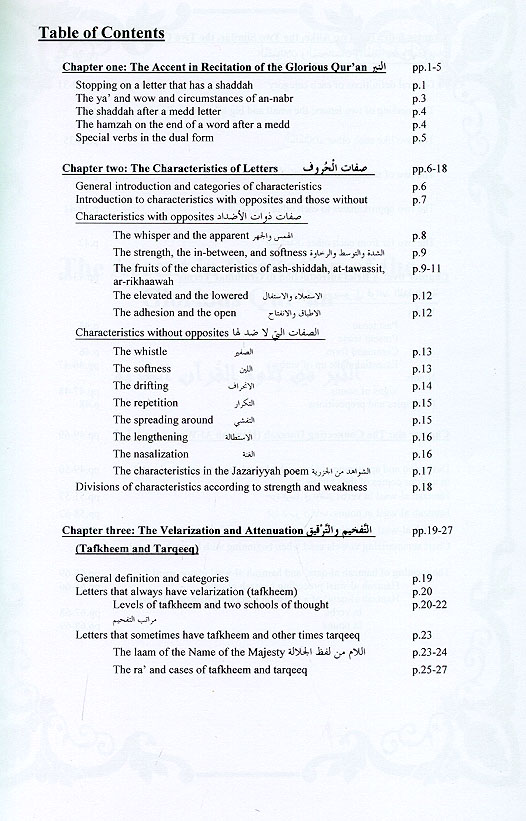 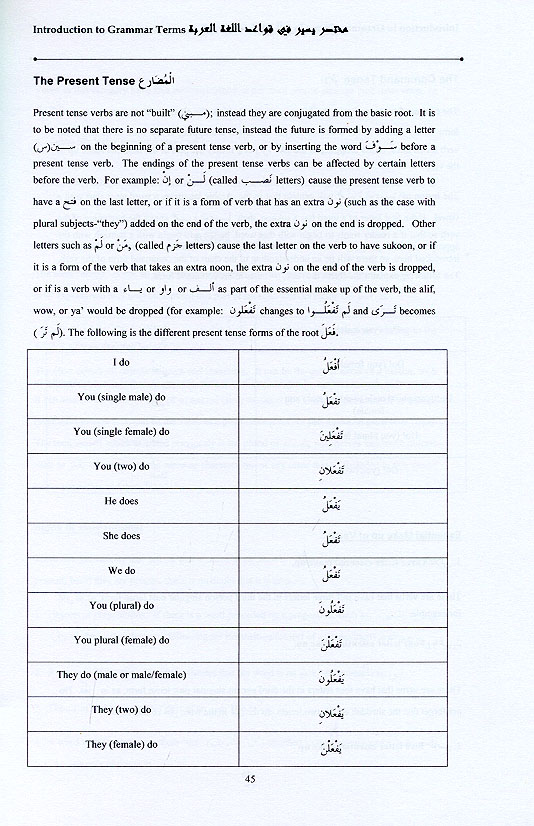 Tajweed Rules Of The Quran part 3: Al-hamdu lillah, this is the third and final part of a three part series in English on the rules of tajweed of the Qur'an for the recitation of Hafs from 'Aasim by the way of Ash-Shaatibiyyah. These books are meant as a guide for non-Arabs with a good grasp of English for studying tajweed of the Glorious Qur'an. This final book explains the stop and start when reading the Glorious Qur'an, and gives details as to what kind of stop is allowed, what kind preferred, and what kind of stop is forbidden. Stopping on the ends of words with strong endings (consonants)and rules for what is allowed on the last letter of the word is described, including and Stopping on the ends of words with weak endings (words ending in the alif, ya' or wow) and different rules and explanations for these type of words is clarified. One important aspect of Qur'an recitation is knowing and understanding which word combinations are written together and which separately in different parts of the Qur'an as well as in which places of the Qur'an are some words are written with the female and in which places they are written with the This part lays out the different places in the Qu'ran these occurrences take place, so the reader knows how he/she can stop on these words. The words that are read in a special way, or have two allowed ways for the reading of Hafs from 'Aasim by the way of Ash-Shaatibiyyah are detailed in this book. The history of the writing of the Glorious Qur'an – and the general rules for the writing of the Qur'an are laid out in the last chapter of this part. This last part of the three parts on tajweed is for students who have studied and mastered the other two parts, or have studied everything covered in the first two parts. The explanations of the different subjects are in English, and the Arabic terms are translated. The goal is always to assist the student in understanding and to encourage them to learn the Arabic terms and definitions. The three parts of this series on tajweed rules of the Glorious Qur'an should facilitate non-Arabic speaking students of the Qur'an whether they are in a classroom with an Arabic medium for teaching or English. With this third part completed, insha' Allah the non-Arab English speaking student of the Qur'an will find a complete curriculum and explanation of the tajweed rules for the recitation of Hafs 'an 'Aasim from the way of Ash-Shatibiyyah in any classroom or study situation that he/she may find themselves in. These three parts are only guidance; the real goal is reciting and applying all the different rules correction which can only be done by reciting to and being corrected by a qualified teacher of the Qur'an. 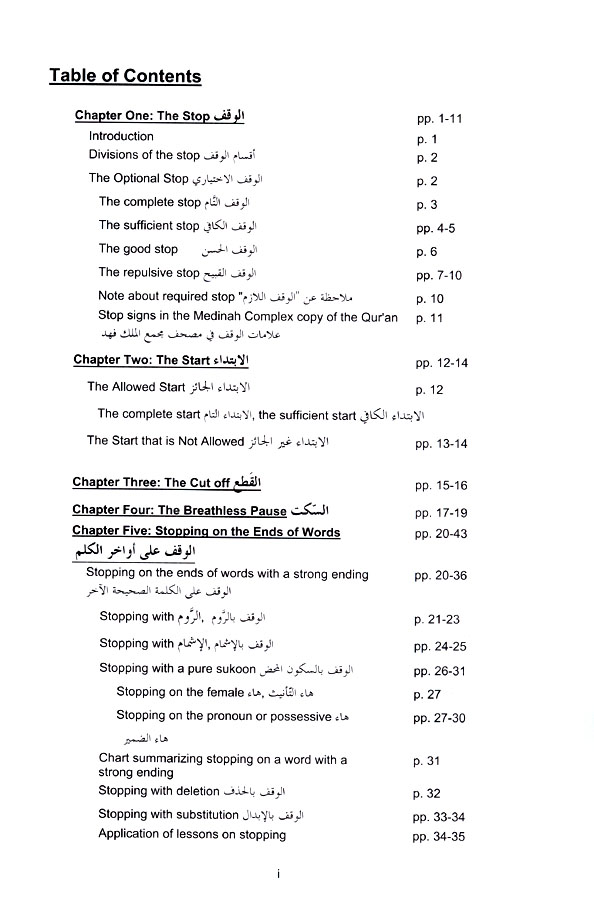 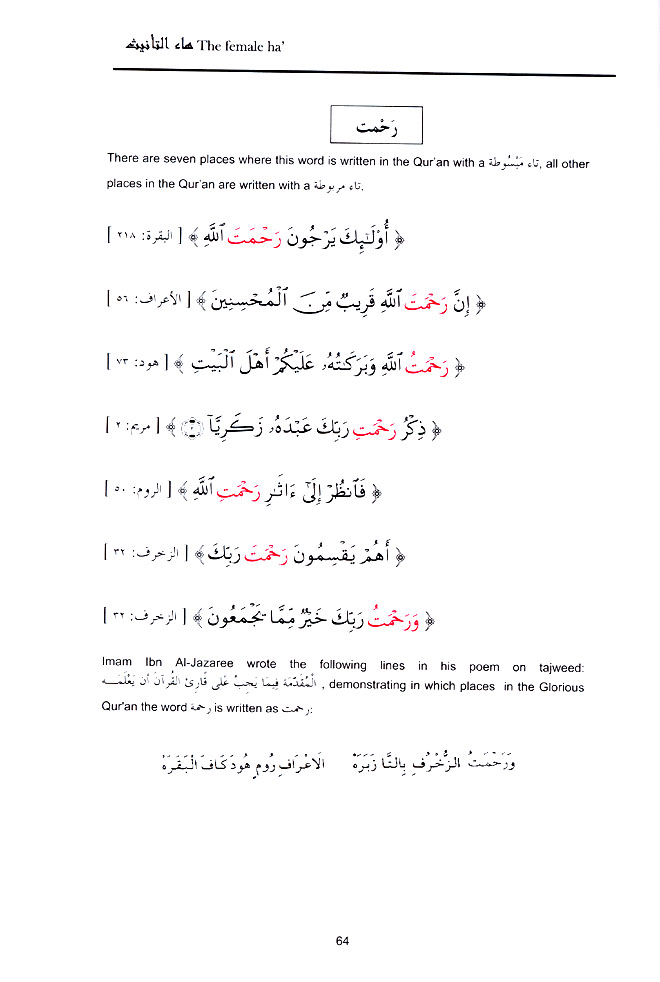 |